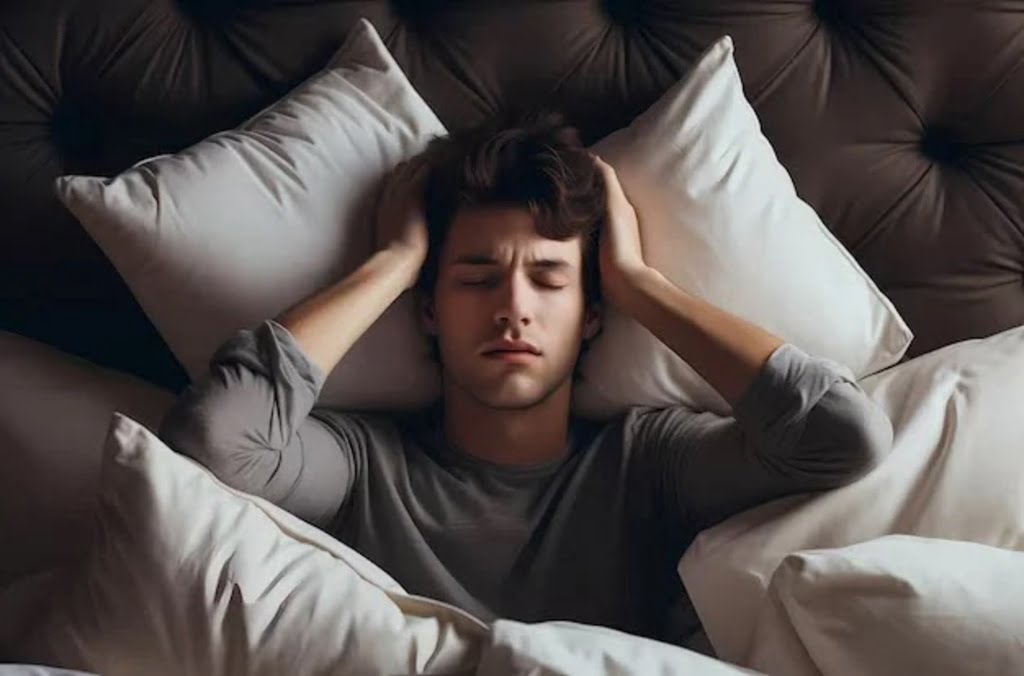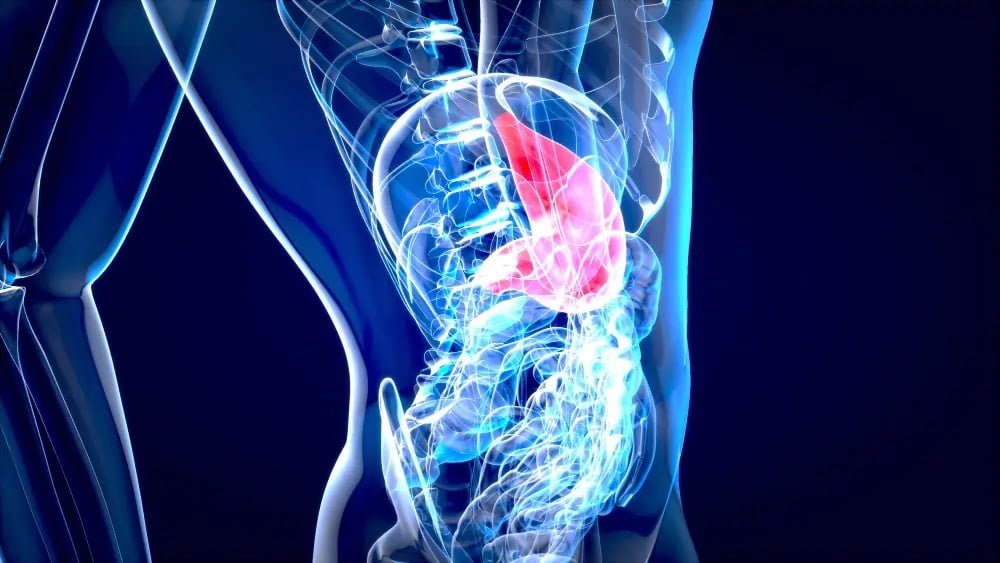
Sleep is not just a passive state of rest, but an active process that affects every aspect of our health and well-being. How we sleep, how much we sleep, and how we feel when we wake up can all reveal important clues about our physical and
mental health. Here are some common sleep habits and what they may indicate about your health.
You have trouble falling asleep or staying asleep

If you toss and turn for hours before drifting off, or wake up frequently during the night, you may suffer from insomnia. Insomnia is a common sleep disorder that affects about one-third of adults at some point in their lives. Insomnia can
have many causes, such as stress, anxiety, depression, medications, caffeine, nicotine, or poor sleep hygiene. Insomnia can also be a sign of an underlying medical condition, such as sleep apnea, restless legs syndrome, thyroid problems, or chronic pain.
Insomnia can impair your daytime functioning, mood, memory, and concentration. It can also increase your risk of developing chronic diseases, such as diabetes, heart disease, stroke, and obesity. If you have trouble sleeping for more than a few weeks, you should talk to your doctor or a sleep specialist. They can help you identify the cause of your insomnia and recommend appropriate treatments, such as cognitive-behavioral therapy, medication, or lifestyle changes.
You snore loudly or gasp for air while sleeping

If you snore loudly or make choking sounds while sleeping, you may have sleep apnea. Sleep apnea is a serious sleep disorder that causes your breathing to stop and start repeatedly during the night. This disrupts your sleep quality and lowers your blood oxygen levels, which can damage your heart, brain, and other organs.
Sleep apnea can affect anyone, but it is more common in men, older adults, and people who are overweight, have a large neck, or have a family history of the condition. Sleep apnea can cause daytime sleepiness, fatigue, headaches,
irritability, and mood problems. It can also increase your risk of high blood pressure, heart attack, stroke, diabetes, and car accidents. If you suspect you have sleep apnea, you should see your doctor or a sleep specialist. They can diagnose your condition with a sleep study and prescribe effective treatments, such as a continuous positive airway pressure (CPAP) machine, oral appliances, surgery, or weight loss.
You drool, talk, or walk in your sleep

If you wake up with a wet pillow, hear yourself talking in your sleep, or find yourself wandering around the house at night, you may have parasomnia. Parasomnias are abnormal behaviors that occur during sleep, such as drooling,
snoring, talking, walking, grinding your teeth, or having nightmares. Parasomnias are usually harmless and do not affect your sleep quality or health. However, some parasomnias can be disruptive, embarrassing, or dangerous, especially if they cause you to injure yourself or others.
Parasomnias can have various causes, such as genetics, stress, medications, alcohol, or other sleep disorders. Most parasomnias can be managed with simple measures, such as improving your sleep hygiene, avoiding triggers, or using a mouth guard or a bed alarm. If your parasomnia is severe or bothersome, consult your doctor or a sleep specialist. They can help you rule out any underlying medical issues and suggest appropriate treatments, such as medication, hypnosis, or behavioral therapy.
Do you sleep too much or too little

The optimal amount of sleep varies from person to person, but most adults need about seven to nine hours of sleep per night to function well. Sleeping too much or too little can have negative consequences for your health and well-being.
Sleeping too much, or hypersomnia, can be a symptom of depression, anxiety, or other mental disorders. It can also be caused by certain medications, medical conditions, or sleep disorders, such as narcolepsy or sleep apnea. Sleeping too
much can make you feel groggy, lethargic, and unmotivated. It can also increase your risk of obesity, diabetes, heart disease, and premature death.
Sleeping too little, or insomnia, can be a result of stress, lifestyle factors, or other sleep disorders, such as restless legs syndrome or periodic limb movement disorder. Sleeping too little can impair your alertness, cognition, mood, and
immunity. It can also increase your risk of obesity, diabetes, heart disease, stroke, and dementia. If you sleep too much or too little regularly, you should seek medical attention. Your doctor or a sleep specialist can help you identify the cause of your sleep problem and recommend appropriate treatments, such as medication, psychotherapy, or lifestyle changes.
You feel refreshed and energized when you wake up

If you wake up feeling refreshed and energized, you are probably getting enough quality sleep. This means that you are following good sleep habits, such as having a regular sleep schedule, avoiding caffeine and alcohol before bed, creating a comfortable and dark sleep environment, and limiting your use of electronic devices at night. Getting enough quality sleep can have many benefits for your health and well-being, such as improving your memory, creativity, mood, and productivity. It can also lower your risk of chronic diseases, such as diabetes, heart disease, stroke, and obesity.
Getting enough quality sleep is one of the best things you can do for your health and happiness. However, if you have any concerns or questions about your sleep habits or health, you should always consult your doctor or a sleep specialist.
They can help you optimize your sleep and address any potential issues affecting your sleep quality or quantity. Remember, sleep is not a luxury, but a necessity. Make it a priority and enjoy the benefits of a good night’s rest.
Conclusion: What Your Sleep Habits Reveal About Your Health
Sleep is essential for our health and well-being. It affects every aspect of our physical and mental functioning, from our mood and memory to our immunity and metabolism. By paying attention to our sleep habits, we can learn a lot about
our health and how to improve it. We can also adopt good sleep hygiene practices, such as having a regular sleep schedule, avoiding caffeine and alcohol before bed, creating a comfortable and dark sleep environment, and limiting our use of electronic devices at night. If we have any concerns or questions about our sleep habits or health, we should always consult our doctor or a sleep specialist. They can help us optimize our sleep and address any potential issues affecting our sleep quality or quantity. Remember, sleep is not a luxury, but a necessity. Make it a priority and enjoy the benefits of a good night’s rest.
FAQs
Q: How much sleep do I need?
A: The optimal amount of sleep varies from person to person, but most adults need about seven to nine hours of sleep per night to function well. Some people may need more or less sleep depending on their age, lifestyle, genetics, and health conditions. The best way to determine how much sleep you need is to listen to your body and how you feel during the day.
Q: What are some common sleep disorders and how can I treat them?
A: Some common sleep disorders include insomnia, sleep apnea, restless legs syndrome, narcolepsy, and parasomnias. These disorders can affect your sleep quality and quantity, as well as your daytime functioning and health. The treatment for each sleep disorder depends on the cause, severity, and symptoms. Some treatments include medication, behavioral therapy, lifestyle changes, or devices such as CPAP machines or oral appliances. If you suspect you have a
sleep disorder, you should see your doctor or a sleep specialist. They can diagnose your condition with a sleep study and prescribe effective treatments.
Q: How can I improve my sleep hygiene?
A: Sleep hygiene refers to the habits and practices that promote good sleep. Some examples of good sleep hygiene are:
-Having a regular sleep schedule and sticking to it, even on weekends
-Avoiding caffeine, alcohol, nicotine, and heavy meals before bed
-Creating a comfortable, quiet, dark, and cool sleep environment
-Limiting your use of electronic devices, such as phones, TVs, or computers, at least an hour before bed
-Engaging in relaxing activities, such as reading, listening to music, or meditating, before bed
-Avoiding naps during the day, especially in the late afternoon or evening
-Exercising regularly, but not too close to bedtime
-Exposing yourself to natural light during the day and avoiding bright light at night
Q: How does sleep affect my mood and mental health?
A: Sleep and mood are closely related. Sleep can affect your mood, and your mood can affect your sleep. When you sleep well, you tend to feel more positive, alert, and resilient. When you sleep poorly, you tend to feel more irritable,
anxious, and depressed. Sleep deprivation can also impair your cognitive abilities, such as your attention, concentration, memory, and decision-making. Sleep deprivation can also worsen the symptoms of some mental disorders, such as depression, bipolar disorder, anxiety, and schizophrenia. On the other hand, getting enough quality sleep can help you cope with stress, regulate your emotions, and improve your mental health.
Q: How does sleep affect my weight and metabolism?
A: Sleep and metabolism are also closely related. Sleep can affect your appetite, energy expenditure, and hormone levels. When you sleep well, you tend to have a balanced appetite and a healthy metabolism. When you sleep poorly, you tend to have increased hunger, cravings, and calorie intake. Sleep deprivation can also reduce energy expenditure, lower insulin sensitivity, and disrupt hormone levels. Sleep deprivation can increase the levels of ghrelin, a hormone that stimulates appetite, and decrease leptin levels, which suppress appetite. Sleep deprivation can also increase the levels of cortisol, a stress hormone that promotes fat storage, and decrease the levels of growth hormone, a hormone that promotes muscle growth and fat burning. Sleep deprivation can also affect your blood sugar levels and increase your risk of developing diabetes. On the other hand, getting enough quality sleep can help you maintain a healthy weight and metabolism.



 Afrikaans
Afrikaans Albanian
Albanian Amharic
Amharic Arabic
Arabic Armenian
Armenian Azerbaijani
Azerbaijani Basque
Basque Belarusian
Belarusian Bengali
Bengali Bosnian
Bosnian Bulgarian
Bulgarian Catalan
Catalan Cebuano
Cebuano Chichewa
Chichewa Chinese (Simplified)
Chinese (Simplified) Chinese (Traditional)
Chinese (Traditional) Corsican
Corsican Croatian
Croatian Czech
Czech Danish
Danish Dutch
Dutch English
English Esperanto
Esperanto Estonian
Estonian Filipino
Filipino Finnish
Finnish French
French Frisian
Frisian Galician
Galician Georgian
Georgian German
German Greek
Greek Gujarati
Gujarati Haitian Creole
Haitian Creole Hausa
Hausa Hawaiian
Hawaiian Hebrew
Hebrew Hindi
Hindi Hmong
Hmong Hungarian
Hungarian Icelandic
Icelandic Igbo
Igbo Indonesian
Indonesian Irish
Irish Italian
Italian Japanese
Japanese Javanese
Javanese Kannada
Kannada Kazakh
Kazakh Khmer
Khmer Korean
Korean Kurdish (Kurmanji)
Kurdish (Kurmanji) Kyrgyz
Kyrgyz Lao
Lao Latin
Latin Latvian
Latvian Lithuanian
Lithuanian Luxembourgish
Luxembourgish Macedonian
Macedonian Malagasy
Malagasy Malay
Malay Malayalam
Malayalam Maltese
Maltese Maori
Maori Marathi
Marathi Mongolian
Mongolian Myanmar (Burmese)
Myanmar (Burmese) Nepali
Nepali Norwegian
Norwegian Pashto
Pashto Persian
Persian Polish
Polish Portuguese
Portuguese Punjabi
Punjabi Romanian
Romanian Russian
Russian Samoan
Samoan Scottish Gaelic
Scottish Gaelic Serbian
Serbian Sesotho
Sesotho Shona
Shona Sindhi
Sindhi Sinhala
Sinhala Slovak
Slovak Slovenian
Slovenian Somali
Somali Spanish
Spanish Sundanese
Sundanese Swahili
Swahili Swedish
Swedish Tajik
Tajik Tamil
Tamil Telugu
Telugu Thai
Thai Turkish
Turkish Ukrainian
Ukrainian Urdu
Urdu Uzbek
Uzbek Vietnamese
Vietnamese Welsh
Welsh Xhosa
Xhosa Yiddish
Yiddish Yoruba
Yoruba Zulu
Zulu